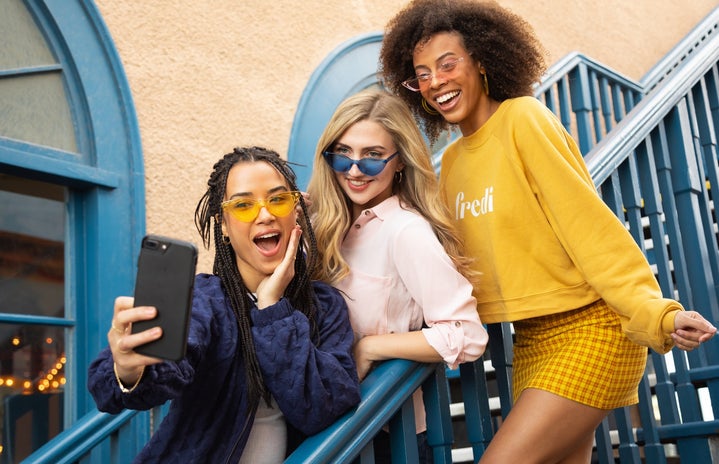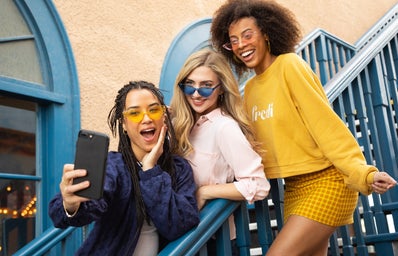Instagram recently launched its latest feature: the option for users to hide their Instagram likes. Instagram has been toying with the idea of hiding likes for a while now — in fact, some users have been unable to see their likes for the past several months.
So, how can you disable Instagram likes? To disable seeing Instagram likes on your own individual posts, click the three dots in the upper right corner of your post, and then hit “Hide Like Count.” To disable seeing Instagram likes on other people’s posts, hit the three horizontal lines in the upper right corner of your account, then click on “Settings” > “Privacy” > “Posts,” and hit the toggle that says “Hide Like and View Counts.” It’s as simple as that, and you can even reverse it if you change your mind later.
The rollout of this new feature comes out amid documentaries like The Social Dilemma that expose the dangers and internal mental damage of social media, especially on teenagers and young adults. This is no surprise: social media taking a toll on people’s mental health has been common knowledge for several years now. Gen Z lives in a world that is, for the most part, online, but this internet void has also been heavily exacerbated by the ongoing pandemic. In a recent interview with Jeremy Tyler, PsyD, an assistant professor at the Center for the Treatment and Study of Anxiety at the Perelman School of Medicine at the University of Pennsylvania, Tyler explained the issue with social media, especially for those with social anxiety, through the lens of COVID-19. “Originally, it was thought that people with social anxiety might benefit from social media use since it could serve as a stepping stone for social interaction,” he said. “In many cases, however, the pressure of gaining more ‘likes’ or more ‘friends,’ has had the opposite effect. Instead of making people who feel socially anxious more connected, it forces them to realize how disconnected they are [during the pandemic].”
“Gen Z lives in a world that is, for the most part, online, but this internet void has also been heavily exacerbated by the ongoing pandemic.”
But even before the pandemic, social media has been a serious problem for people’s mental well-being. A study consisting of three experiments led by researchers at the University of Texas at Austin found that likes on social media can contribute to anxiety and depression in teenagers and young adults. The study had teenagers make their own social media profile and interact with similar-aged peers. Some teenagers were assigned to receive only a few likes or a lot of likes — from this series of experiments, researchers discovered that teenagers that did not receive many likes felt more rejected and “reported more negative thoughts about themselves.” David Yeager, an associate professor at University of Texas at Austin who helped with the study, spoke on the results. “These results are striking, in part, because the adolescents aren’t getting bullied or harassed; they’re just not getting ‘liked’ as much as they want to be,” Yeager said. “And that’s leading them to show symptoms of depression.”
Even though it is strikingly apparent that social media, and likes specifically, are detrimental to our mental health, most Gen Z’ers nevertheless have a slew of social media accounts: Instagram, Snapchat, Twitter, TikTok — it’s nearly impossible to stray away from looking at things such as like counts and numbers of retweets and incessantly wondering: Do people like me? How many likes did my post get? Did I get more likes than so-and-so? Why did so-and-so get so many likes, and I didn’t?
So… are people actually hiding their likes, or does this new feature just mean nothing? I decided to hide my Instagram likes once the feature came out, but was I just the lone wolf? To find out, I decided to interview five college-aged women on their take on hiding their Instagram likes.
“I definitely still feel pressure to post certain things and not others depending on the likes it will get.”
Most of these women told me that they use Instagram to simply connect with family and friends, and occasionally for professional purposes. When I asked them what they thought of the new Instagram feature of disabling likes and if they are personally going to use it, they reached a common consensus for the most part:
“I think this feature is a really great idea. I think that a lot of social media has warped into a toxic form of comparing oneself with others. Although removing likes from Instagram won’t make the app perfect, I feel that this would play a huge role in dampening the effect of social comparison on Instagram. I plan on using this feature because even though I try not to think about it, I definitely still feel pressure to post certain things and not others depending on the likes it will get. I anticipate that removing likes from my posts will be a freeing experience.” — Macy Boren, 20.
“I think it’s both a good and bad feature! It’s good because Instagram can be so competitive, so I think removing likes relieves a lot of pressure from posting ‘perfect’ content and moving towards more genuine engagement, which I think people respond to better. The downside of likes, I think, would be brands using it — I do use their like counts and engagement to see if their company is something I trust and if people really engage in the product. I think I’ll eventually transition into hiding the like counts soon, but I think that’s a big step to take towards feeling validated without numbers, [especially] since it’s been like that for so long.” — Adrienne Rovere, 24.
“I think for me it’s super helpful in reminding me why I post things: for myself.”
“I love it! I have used it and will keep using it! I think for me it’s super helpful in reminding me why I post things: for myself. I just like that the focus isn’t on the number of likes but the actual post itself!” — Carly Grace, 20.
“I can see myself using that feature in the future. I eventually want to work in social media for the reason of making it less of a negative space for teenagers and young adults especially. Social media in general has many correlations to negative health aspects, and I think hiding likes is a step in the right direction [in] attempting to alleviate social stressors and anxieties surrounding things like trying to keep up with trends or appear popular or well-liked.” — Delanie Bercerra, 20.
“I’ve been using this feature and really enjoying it so far! Since using the update, I’ve noticed I spend a lot less time on Instagram and have not been as self-conscious about what I post. I’m really glad this is an option for people who want it!” — Carrie Wallace, 21.
So, there you have it: it seems that many college-aged women are taking advantage of this new feature, and I am, too! However, although the implementation of this new feature is a step in the right direction, it is definitely not a perfect solution. Social media still plays a serious role in diminishing people’s mental well-being, and this is important to keep in mind before mindlessly scrolling through Instagram for several hours. Truth be told, I spend a lot of time on Instagram (more than I’d like to admit), and after doing more research on the negative effects it can have on my health, I will definitely try to cut back more and encourage you to do the same!
Sources:
Lee, H.Y. et. al (2020). Getting Fewer “Likes” Than Others on Social Media Elicits Emotional Distress Among Victimized Adolescents. Child Development.


